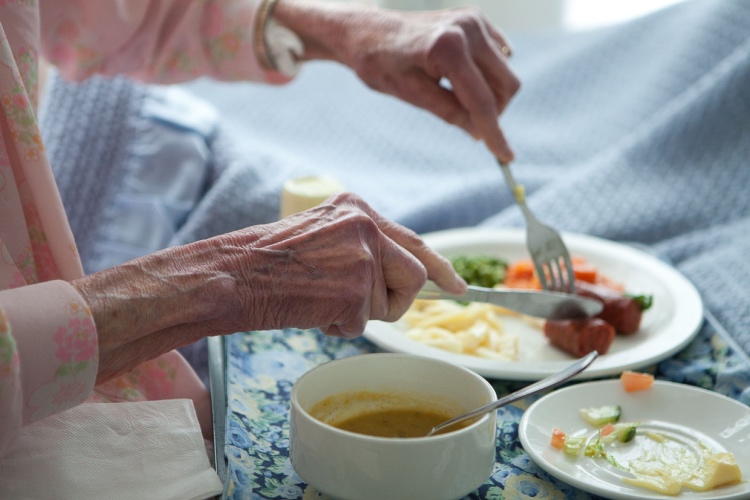
Across the country, older adults have long depended on Medicaid and the Supplemental Nutrition Assistance Program (SNAP) to help meet basic needs like healthcare and food. With new changes now being phased in through federal budget legislation, both programs are being adjusted in ways that could affect access, eligibility, and benefits, especially for those between the ages 50 and 64 who may not yet qualify for Medicare or full Social Security retirement benefits.
For older adults living on fixed or limited incomes, even small changes to coverage or food support can have a big impact.
Table of Contents
- Work Requirements Are Expanding
- Medicaid Is Becoming Harder to Keep
- Changes in SNAP
- More Responsibility on States
- Increased Red Tape and Paperwork
- Risks to Home and Community Care
- What About Medicare?
- How These Changes Affect Daily Life
- Coping With Change
- Frequently Asked Questions
Work Requirements Are Expanding
For the first time, people between the ages of 55 and 64 who receive SNAP may need to meet work or activity requirements to keep their benefits. That means 80 hours a month of work, volunteering, or school-related activity.
This isn’t just a small shift. It affects those who might be working part-time, dealing with health concerns, or already caring for others.
Medicaid is also rolling out new rules. Adults between 19 and 64 who don’t have dependents may need to meet similar 80-hour-per-month activity rules to stay enrolled. These requirements aren’t in effect everywhere yet, but they will be by early 2027 unless a state delays or adjusts implementation.
Even if you’re exempt because of your health or caregiving role, you might still need to prove it with documentation.
Medicaid Is Becoming Harder to Keep
Medicaid is also rolling out stricter eligibility processes. Instead of checking eligibility once a year, some people will now need to verify their information twice a year. That means more deadlines to remember, more forms to complete, and a higher risk of losing coverage by mistake.
Another big change is how far back Medicaid will cover bills. Before, people could get help with medical expenses from up to three months before their application date. Now, that window is getting shorter. Some will only get coverage for the month before they applied, and others for two months.
There are also new rules about out-of-pocket costs. Starting in 2028, some people with incomes slightly above the poverty line could be charged up to $35 for certain medical services that used to be free under Medicaid. This will affect those who fall into the Medicaid Expansion group.
Changes in SNAP
SNAP, which helps people buy groceries, is seeing changes too. Not only are more people going to be expected to meet work requirements, but states will also begin covering more of the program’s costs.
Starting in 2027, states will need to pay a bigger portion of SNAP’s administrative expenses. By 2028, states will also help cover the actual cost of benefits, based on how accurately they’ve managed the program in recent years.
These changes might sound like behind-the-scenes budgeting, but they could influence how states run the program. If a state is trying to manage a tighter budget, they may take longer to process applications or make it harder to qualify.
And because SNAP looks at the whole household, if one adult in the home loses benefits because of work requirements, it can reduce food assistance for everyone else in the home, even seniors.
More Responsibility on States
As more responsibility shifts from the federal government to individual states, there will likely be more differences in how Medicaid and SNAP are managed.
Each state will decide how to handle work verification, eligibility reviews, and cost-sharing. Some may be quicker to make changes, while others may take more time. This means what happens in one state may look very different from what happens in another.
For seniors who move between states or split time between locations, that could lead to confusion or even loss of coverage if requirements aren’t met.
Increased Red Tape and Paperwork
More rules also mean more red tape. Whether it’s proving work hours, submitting updated income details, or renewing benefits more frequently, the paperwork burden is growing.
And it’s not just about filling out forms. Seniors with limited access to the internet or who aren’t comfortable using technology may find it harder to complete these tasks on time. Others may not realize a deadline is coming until it’s already passed.
Even for those who qualify, missing a deadline or submitting the wrong document could result in benefits being paused or revoked.
Risks to Home and Community Care
Medicaid doesn’t just cover doctor visits or prescriptions. It also supports in-home services that allow older adults to live independently, things like help with dressing, bathing, or preparing meals. Many of these are part of optional programs that states can choose to fund.
With funding cuts on the horizon, some of these programs may be reduced or eliminated. That could leave seniors without access to the services that help them stay at home instead of entering a care facility.
The loss of home-based support doesn’t just increase personal stress, it can lead to higher costs elsewhere and a greater burden on caregivers.
What About Medicare?
While most of the recent changes are aimed at Medicaid and SNAP, Medicare is part of the conversation too, especially for seniors who are “dual eligible”, meaning they receive both Medicare and Medicaid.
Right now, Medicare helps cover doctor visits, hospital stays, prescriptions, and some outpatient care. But it doesn’t cover everything. That’s where Medicaid often fills in the gaps, helping with things like dental, vision, hearing, in-home care, or covering out-of-pocket Medicare costs.
Some of those support programs are changing. For example:
- The Medicare Shared Savings Program, which helps cover premiums for low-income seniors, may lose funding under new budget plans.
- Certain support services tied to aging, caregiving, and elder protection are being moved or reduced, this includes programs like SHIP (State Health Insurance Assistance Program) and long-term care ombudsman services.
- Preventive programs connected to Medicare, like fall prevention and chronic disease workshops, may be restructured or eliminated, depending on how the new funding shifts are finalized.
If you rely on both Medicare and Medicaid, it’s important to check in with your care provider, case manager, or insurance plan. These overlapping systems can get complicated, and any change to one might affect the other.
How These Changes Affect Daily Life
For older adults trying to manage their health, finances, and independence, these policy updates can feel overwhelming. Some of the most noticeable effects include:
- Longer wait times to get approved for services
- Surprise medical bills or service charges
- Trouble accessing food benefits due to new work rules
- Less stability in ongoing care or in-home support
- Increased anxiety about staying enrolled or losing coverage
Even when someone still qualifies for help, the added complexity can cause serious stress. And for those without strong support systems, it can be hard to keep up.
Coping With Change
These changes to Medicaid, SNAP, and Medicare can feel like a lot, especially when they hit all at once. At Blue Moon Senior Counseling, we understand that the emotional weight of these shifts is just as real as the paperwork. If you’re feeling anxious, frustrated, or just worn out by it all, we’re here to help.
Our therapists specialize in working with older adults. We’re here to listen, support, and walk with you through whatever comes next. Whether you’re worried about losing coverage, struggling to keep up with requirements, or just trying to stay grounded, you’re not alone.
Reach out to Blue Moon Senior Counseling today.
Frequently Asked Questions
- Do I have to work to keep my Medicaid or SNAP benefits now?
If you’re between 50 and 64 and don’t have dependents, new work rules may apply. But there are exemptions for people with medical conditions or caregiving responsibilities. You may need documentation to qualify for an exemption.
- How often will I need to renew my benefits?
For Medicaid, some people will need to reverify eligibility every six months. SNAP renewal schedules can vary by state, so it’s important to stay on top of communication from your local agency.
- What should I do if I miss a deadline?
Contact your Medicaid or SNAP office right away. In many cases, benefits can be reinstated if the issue is resolved quickly.
- Will I have to pay out-of-pocket for Medicaid services?
Starting in 2028, some people may see service charges up to $35 if their income falls into a certain range. These changes will depend on the state and the type of Medicaid coverage.
- Can I talk to someone about how this is affecting my mental health?
Yes. Blue Moon Senior Counseling offers support for older adults dealing with stress, anxiety, or life changes like these. Talking to a counselor can help you process what’s happening and find ways to cope.
Sources:








